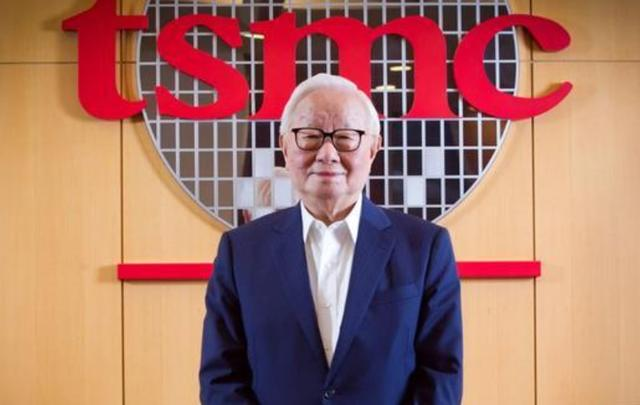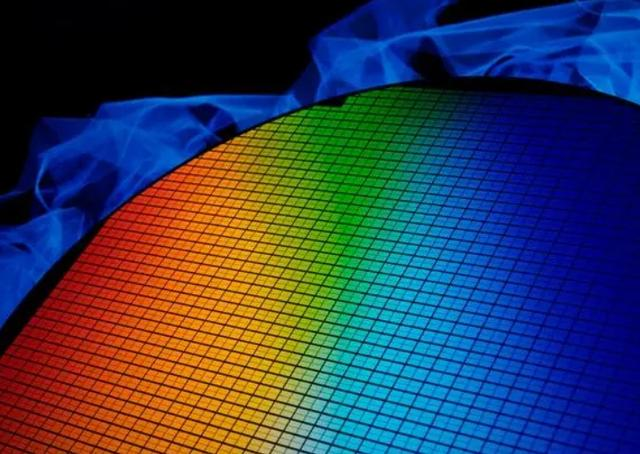As is well known, due to changes in the external environment, chip foundries such as TSMC and Samsung have successively lost their right to freely ship to the outside world. The export channels for high-end chip foundry business are hindered, leading to more and more countries developing localized chip foundry industries, thereby eliminating the potential impact of external environmental changes.
At present, countries such as China, Russia, Japan, and the European Union are all laying out advanced semiconductor technology, and among these countries that are laying out localized chip industry chains, there is a common characteristic. That is to eliminate the potential impact of external supply chain changes on the domestic technology industry. Recently, new data from Huawei has been released, and TSMC regrets it too late. Even Zhang Zhongmou, founder of TSMC, expressed pessimistically that “Taiwan, China’s semiconductor advantages will disappear in the next 20 to 30 years.”

It is understood that TSMC is the world’s largest wafer foundry enterprise, with main customers including American chip design companies such as Qualcomm, NVIDIA, and Apple. Before the introduction of new regulations in the United States in 2019, among TSMC’s top three clients was Huawei HiSilicon, a semiconductor design company from China. After losing Huawei orders, TSMC’s development began to be influenced by American chip design companies.
However, due to the slowdown in demand for imported chips by Chinese companies, there has been a production capacity overflow for American chip design companies. Many companies are cutting orders with downstream chip foundries, which has also affected TSMC’s revenue. According to the latest news, TSMC may lower its full year capital expenditure for 2023 from the original $32 billion to $36 billion to less than $30 billion. The significant reduction in capital expenditure also means that TSMC’s expansion speed will further slow down. In the face of such a situation, Huawei has delivered a much higher than expected answer to the market.

Huawei’s new data transmission
According to the latest report released by Counterpoint Research, a market research firm, Huawei sold 1.6 million flagship Mate 60 Pro series phones in just 6 weeks, of which over 400000 were sold in the past two weeks, marking the time point for the release of the iPhone 15 series.
From the perspective of market demand, Huawei Mate 60 Pro will continue to be in short supply for a long time. Faced with the trend of declining shipments in the global smartphone market, Huawei has still achieved high-level growth against the trend. If TSMC can successfully secure Huawei’s chip orders, the development of chip foundry business will be constrained by the influence of American companies, and it will naturally be perfectly resolved.

TSMC regrets it too late!
In order to compete for the shipment of Huawei chips, TSMC stated in its first timetable that “TSMC is also striving for relevant exemptions after obtaining exemptions from Samsung, SK Hynix, and others.” Now, even if TSMC regrets it, it has already arrived too late. At that time, when TSMC lost its Huawei order, it did not make every effort to strive for free shipping.
Now, if you regret it, you want to get back Huawei’s chip order, not to mention whether the US agrees or not. Even if the other party agrees to TSMC providing Huawei with some chip foundry services, Huawei is unlikely to continue using TSMC’s chip foundry services. Not only Huawei, but also other domestic chip design manufacturers will not hand over their key orders to TSMC for production.

Zhang Zhongmou: Taiwan Semiconductor’s Advantage Will Disappear
On October 15th, TSMC founder Zhang Zhongmou pessimistically stated in a public speech that the semiconductor industry no longer has the so-called globalization and free trade. What is important now is security, and every country and region is worried about their own security. From a competitive perspective, “other companies will use their geopolitical advantages to defeat TSMC, and the challenges TSMC will face in the future will be more severe than before.”
When talking about Taiwan’s leading semiconductor industry, Zhang Zhongmou said, “The advantages of Taiwan’s semiconductor industry will disappear in 20 to 30 years.” It is not difficult to see that as a chip foundry enterprise, TSMC is currently in a very awkward situation. While TSMC is subject to US chip regulations, its competitors are expanding recklessly.

To solve this situation, TSMC must strive for free shipping of its chip business. But the US will definitely not allow such a situation to occur. At present, only by developing and beautifying the chip industry chain can we possibly solve the situation where TSMC’s chip foundry business is constrained by others.
Huawei’s strong rise indicates that the comprehensive strength of the mainland’s chip industry chain is constantly increasing. I believe it won’t be long before even without TSMC’s chip foundry services, mainland enterprises can independently and independently produce high-end chips.
Refer Link: https://baijiahao.baidu.com/s?id=1780178197654088994&wfr=spider&for=pc
